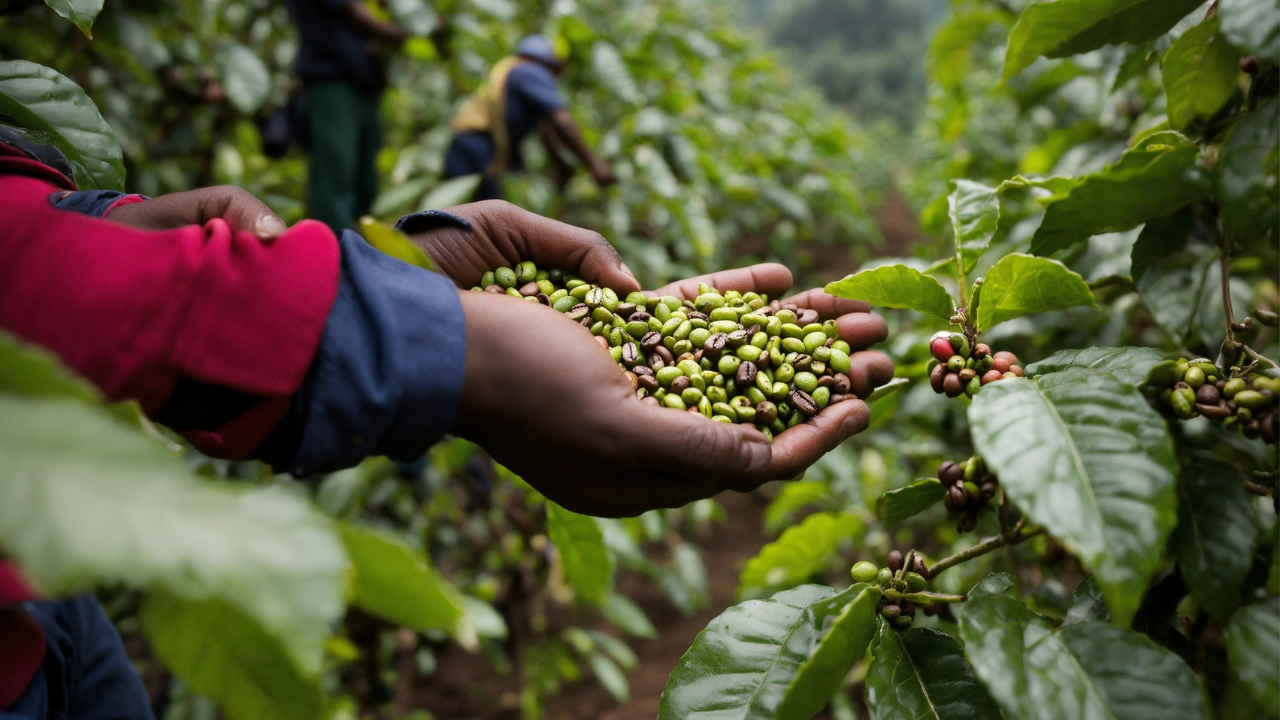[ad_1]
VISAKHAPATNAM: Multiple lakh espresso farmers within the Alluri Sitarama Raju district are going through a troublesome scenario because the costs of cherry espresso have dropped within the native market. Personal merchants are shopping for cherry espresso at Rs 120 per kilo, which is way decrease than the worldwide market value of Rs 160 per kilo. This sudden drop of Rs 40 within the value has put the espresso farmers in serious trouble as they’ve a whole bunch of sacks of espresso stacked of their storage rooms.
Round 2.3 lakh espresso farmers within the district are cultivating espresso on 2.43 lakh acres in all 11 mandals.This space has elevated from one lakh acres a decade in the past to 1.43 lakh acres after the tremendous cyclone of Hudhud in 2014.
The state authorities had deliberate to develop espresso cultivation to 1 lakh acres by 10,000 acres yearly within the final decade and in addition introduced 40,000 acres consolidation after cyclone Hudhud.
Roughly 1.9 lakh acres of espresso yield was generated this 12 months, together with the espresso plantations owned by the AP Forest Improvement Company (APFDC), which has 10,000 acres, and in addition the tribal sector.
Round 75% of the produce could be clear espresso, and 25% could be cherry espresso. Nonetheless, each clear espresso and cherry espresso costs have decreased, and native merchants are shopping for espresso from farmers at considerably decrease costs than the market charges. The native merchants are buying at their will and proving pricey to the farmers, one of many espresso farmers Korra Bonjibabu alleged. He added that parchment espresso value is inspired however the cherry espresso value could be very disappointing.
The espresso board officer Ramesh mentioned that the merchants would comply with the costs of Bangalore Market – Indian Espresso Commerce Affiliation, based mostly on the worldwide market.
“At first of the season, native merchants bought cherry espresso at round Rs. 150, however steadily decreased the worth to Rs 120. Farmers are disillusioned as they anticipated good costs this 12 months, however the native merchants are looting them by lowering the costs,” one other espresso farmer Vantala Lakshman accused.
The Espresso Board officers advise farmers to contact 8037685003 for the nationwide and worldwide costs. They need to not promote the produce for a low value. In the meantime, farmers are requesting the Girijan Cooperative Company (GCC) to loosen up the humidity proportion of beans and buy the espresso beans, as steady fog circumstances within the space have prompted the espresso beans to stay moist even after drying.
The espresso cultivation within the forest areas of Ap dates again to 1960 when the Forest Division developed espresso in 4000 hectares. GCC and the Built-in Tribal Improvement Company (ITDA) helped the tribals to domesticate espresso, which proved to be a superb supply of earnings in comparison with different crops. Nonetheless, the involvement of middlemen and lack of understanding have been proving pricey to the farmers, who’re urging the GCC to take lively steps to assist them.
Round 2.3 lakh espresso farmers within the district are cultivating espresso on 2.43 lakh acres in all 11 mandals.This space has elevated from one lakh acres a decade in the past to 1.43 lakh acres after the tremendous cyclone of Hudhud in 2014.
The state authorities had deliberate to develop espresso cultivation to 1 lakh acres by 10,000 acres yearly within the final decade and in addition introduced 40,000 acres consolidation after cyclone Hudhud.
Roughly 1.9 lakh acres of espresso yield was generated this 12 months, together with the espresso plantations owned by the AP Forest Improvement Company (APFDC), which has 10,000 acres, and in addition the tribal sector.
Round 75% of the produce could be clear espresso, and 25% could be cherry espresso. Nonetheless, each clear espresso and cherry espresso costs have decreased, and native merchants are shopping for espresso from farmers at considerably decrease costs than the market charges. The native merchants are buying at their will and proving pricey to the farmers, one of many espresso farmers Korra Bonjibabu alleged. He added that parchment espresso value is inspired however the cherry espresso value could be very disappointing.
The espresso board officer Ramesh mentioned that the merchants would comply with the costs of Bangalore Market – Indian Espresso Commerce Affiliation, based mostly on the worldwide market.
“At first of the season, native merchants bought cherry espresso at round Rs. 150, however steadily decreased the worth to Rs 120. Farmers are disillusioned as they anticipated good costs this 12 months, however the native merchants are looting them by lowering the costs,” one other espresso farmer Vantala Lakshman accused.
The Espresso Board officers advise farmers to contact 8037685003 for the nationwide and worldwide costs. They need to not promote the produce for a low value. In the meantime, farmers are requesting the Girijan Cooperative Company (GCC) to loosen up the humidity proportion of beans and buy the espresso beans, as steady fog circumstances within the space have prompted the espresso beans to stay moist even after drying.
The espresso cultivation within the forest areas of Ap dates again to 1960 when the Forest Division developed espresso in 4000 hectares. GCC and the Built-in Tribal Improvement Company (ITDA) helped the tribals to domesticate espresso, which proved to be a superb supply of earnings in comparison with different crops. Nonetheless, the involvement of middlemen and lack of understanding have been proving pricey to the farmers, who’re urging the GCC to take lively steps to assist them.
[ad_2]
Supply hyperlink


